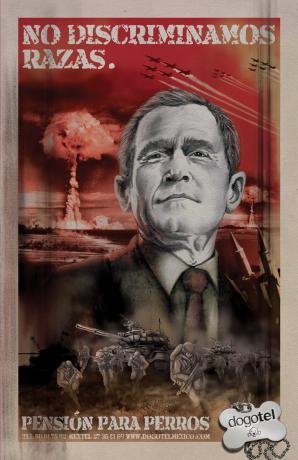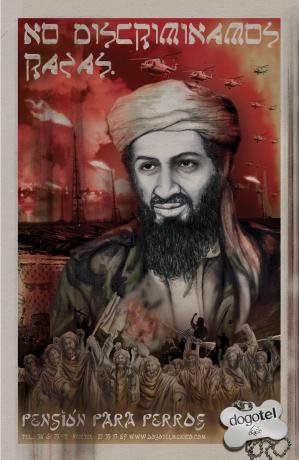 "How we see a thing – even with our eyes – is very much dependent on where we stand in relationship to it."
"How we see a thing – even with our eyes – is very much dependent on where we stand in relationship to it."To some very close friends, hip-hop merely meant the flash bling gangsta rap of Hollywood and a self-defined American underclass. It was being violently replicated in the gangster infested Cape Flats of Cape Town - and seemed little else but imitation rap, with a vile eye for sexist objectification and crude, venomous drivel. Look at the bling car with the distorted jukebox coming by and see a rapist, a pathetic violent excuse for a human.
I had a different take. I didn't like the Cape Coloured hip hop explosion - I didn't like the Afrikaans vernacular with its unsmooth sharpness - but embraced rap. I heard the melodic rhythm, the underlying beauty and above all the freedom to define: "I am. Fuck you." Of course it was a confrontation with power, with being defined - and it might have been mindless (but it might also have been yet another small, essential, moment of definition of place in the journey to enact the symbolic phenomenon that is Obama). At about the same time I started immersing myself in both house and the more pulsating and intriguing trance genres.
As a South African, I am exposed to deep house as the dominant (black) youth beat; and to trance as an extremely challenging and fast-evolving niche beat with significant (white) middle-class consumer appeal. But South African hip hop has become mainstream; its moved out of its coloured origins, and straddles both African ikasi (township) and multi-cultural middle-class worlds. I personally love hip hop; its as potentially challenging in its sophistication as trance, as melodic as the best that generations of black Americans have given the world; and its integration with poetry, with dancing, with explosive variations of leisure (from skateboarding to graffiti) has both revitalised music into a global showcase of fun, and re-connected with the much older African traditions of theater, oral history, music, symbolism, event and defining of community.
Local hip hop came off age - to me - with Hip Hop Pantsula's Omang Reloaded. Here was this lali kasi (village township) boy with the smooth Setswana rap, the new sound, the local RRROOTS, and the post-liberation attitude - loxion (township) life reloaded, a new vibe defined, music that moved the soul, the mind and the body. At-ti-tude; where you been? Suddenly the Cape Town Old Skool became more relevant - where could you find a finer technician and creator of turntablism than DJ Ready? And here's a brother that really understands - and builds upon - the roots of hip hop culture.
South African Hip hop is quietly present rather than visible in the flow of tackling social issues: be it gangsterism, AIDS, unemployment or the virile wave of Xenophobia that swept Mzantsi (South Africa) during 2008. Music is a powerful transmitter of what's cool and what's not; and many hip hop artists were quick to condemn the xenophobia. (Unlike the media; the political powers-that-be; and Street Joe.)
DJ Nifty: "All you psychotic xenophobic sociopathic suckers this goes out to you / all you wannabes / who feel like men after raping women / after killing pregnant women after attacking children after setting men alight / we have no respect for you / you're the reason why the world is moving backwards instead of moving forwards". (Hype sessions; It's dat heat; CD accompanying SA's only dedicated hip-hop magazine.)
If early South African hip hop was built on a fusion of alienated apartheid-era lyrics and channeling of angry energy into breakbeat dancing; the contemporary reality is a fascinating emergence of new styles and cultures. Township hip hop is about performance - the music, reciting of lyrics, expression of real and perceived African clothing and hair styles. Above all its local; its rooted in the loxion experience, and its very real in its emotion, its enthusiasm. There's a contradictory embracing of the African diaspora (seen in clothing and hair styles; much of it fused with the side-stream rastafarian culture, that's finding hip-hop an emracing environment of content-driven soul music). There's a strong identification with the symbolism of American consumerism - Nike's a uniform, a social statement - Just Do It. Don't sneer from your middle-class command of analytic and cynical overview - what do you really know about the need to project yourself as Someone in a sea of poverty?
Six years ago I worked on a tourism programme setting-up horse trails. I drove a (newish) Land Rover Defender, had long dreads and walked barefeet - I had no need to impress anyone with suits and all the pretences that come with being Mr or Mrs Fake. I quickly experienced - and thoroughly enjoyed - the arrogant power that came with alighting from that Land Rover, barefeet, dreaded, very casual clothing, as Mr and Mrs Fake stared (and then quickly averted their eyes) with disbelief from their lesser cars, poorer existence; uptight lifestyle, clothes and uncool minds. That's the Nike phenomenon. It makes you rise above the semblance of your despair.
The middle class kids live their hip hop lives very Americanised, but they're cool too; far more immersed in the sideshows (cycling, skate boarding, graffiti, break dancing and emceeing; with a full repertoire of Wardrobe America and - of course - the accent). The rap's in English, but don't dish it. These kids freely cross Mzantsi's lingering racial boxes.
Globally, hip hop's a remarkably dynamic fusion-driver: note Wyclef's ground breaking collaborations with artists as diverse as Youssou N'dour and Kenny Rogers (or his Shout Out respect to Pink Floyd; Wish You Were Here to a hip hop beat). Or the very visionary Quincy Jones' 1989 collaboration with rappers.
To the township rappers there's an urgent need to break free - that's not their world, and the first priority is to rap vernacular. Hip hop's about the issues, the life, the environment that you live - so you can't adopt the Alien Other's voice. To break out of the domination of the colonizer's language is to break through the self-perpetuating hopelessness of living a life of fantastical dreams - you want to be the other in the movies, the high-security townhouses of the middle class, the articulator with a smooth English accent, Italian suit, lusted-for 7-series...
Its to regain your own mental universe; that's the greatest strength of hip-hop - and it happens to a great beat.
"Colonialism imposed its control of the social production of wealth through military conquest and subsequent political dictatorship. But its most important area of domination was the mental universe of the colonized, the control, through culture, of how people perceived themselves and their relationship to the world. Economic and political control can never be complete or effective without mental control. To control a people’s culture is to control their tools of self-definition in relationship to others.
For colonialism this involved two aspects of the same process: the destruction or the deliberate undervaluing of a people’s culture, their art, dances, religions, history, geography, education, orature and literature, and the conscious elevation of the language of the colonizer. The domination of a people’s language by the languages of the colonizing nations was crucial to the domination of the mental universe of the colonized."
To Mlungisi - DJ Jeff: thanx 4 showing me that music makes cool now. Finally, here's a Shout Out to my older friends - do not freeze your sense of discovery, of awe, in the loneliness of the past. There are no friends in memories; no life in the comfort zones of the past. Use that as a base, but do not render that your world. The Now - full of warmth and real people - will become incomprehensible.
Both quotes above are from Ngũgĩ wa Thiong’o. (1986) Decolonising the Mind


No comments:
Post a Comment